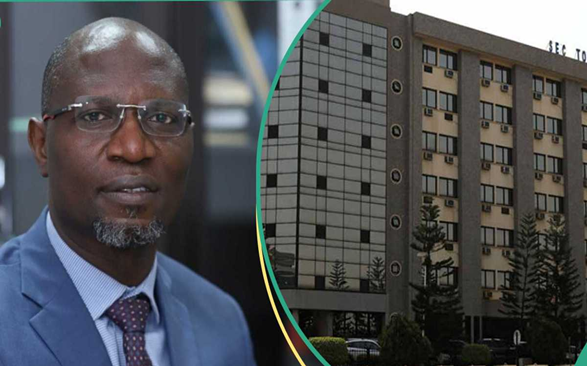by Jude Ayua
In a post on X on Valentine’s Day, February 14, Binance’s Head of Financial Crimes Compliance, Tigran Gambaryan, narrated his experience in detention in Nigeria for approximately 8 months. This followed an earlier report by WIRED on 10 February detailing the “untold story” of Gambaryan’s “descent into Nigerian prison.”
Gambaryan’s Val letter
In his X post, Gambaryan stated serious allegations of bribery, corruption, abuse of power, and diplomatic fallout in relation to the Nigerian government’s actions against Binance and its executives. The allegations include:
- Bribery: Certain members of the Nigerian House of Representatives allegedly demanded a $150 million bribe in cryptocurrency during a meeting Gambaryan believed was staged. “They set up fake cameras and media to make the meeting appear official, but the cameras weren’t even plugged in,” he said.
- Illegal detention: Nigerian authorities reportedly detained Gambaryan and another Binance executive, Nadeem Anjarwalla without concrete evidence and due process, to pressure Binance into compliance.
- Misrepresented data: Contrary to the Nigerian government’s claim that Binance facilitated the outflow of $26 billion from the country, Gambaryan said the authorities misrepresented the figures. “This money didn’t leave Nigeria—it was just people buying and selling crypto…if you trade $100 a hundred times, that’s $10,000 in trade volume, but in reality, you only used $100,” he explained.
- Data privacy violations: Nigerian officials allegedly coerced Binance to provide user data to prove the government’s blame of Binance for the Naira’s devaluation. Gambaryan refuted the claim that Binance influenced the Naira’s devaluation. “…they all knew that the naira’s devaluation was a direct result of Tinubu’s monetary policy, which depegged the naira from the dollar,” he claimed.
- Cover-up about Anjarwalla’s extradition: Contrary to claims that Nadeem Anjarwalla escaped from lawful detention, Gambaryan asserted that their detention was illegal, and there could not have been an extradition.
- Medical neglect: While in prison, Nigerian authorities reportedly denied Gambaryan medical care. When they finally allowed him access to a Turkish hospital, they pressured the hospital from giving him proper treatment and to withhold his medical records.
- Diplomatic repercussions: Nigerian authorities’ mishandling of the case allegedly led to strained diplomatic relations between the US and Nigeria, including visa restrictions for the 2025 UN General Assembly delegates and fears of President Biden not meeting with President Tinubu.
- Detention of law enforcement officials and political ambition: Nigerian authorities ordered the detention of its Economic and Financial Crimes Commission (EFCC)’s officials for complicity in Nadeem Anjarwalla’s escape. Gambaryan accused Nigeria’s National Security Advisor, Nuhu Ribadu, of seeking massive payouts to fund future political ambitions.
Read also: Nigeria to set Binance Executive Tigran Gambaryan free; drops all charges against him.
The untold story of Gambaryan—WIRED
In a detailed report on 10 February, titled, “The Untold Story of a Crypto Crimefighter’s Descent Into Nigerian Prison,” WIRED’s Andy Greenberg narrated the ordeal Gambaryan faced in his eight months’ detention in Nigeria. The report covered Gambaryan’s career, involvement with the Binance case, his health during detention, his eventual release, and impact on diplomatic relations between Nigeria and the US.
-
Gambaryan’s career and crypto investigations
Gambaryan, who Greenberg described as “one of the world’s most prominent victims of that collision between anarchic financial technology and global law enforcement,” worked ten years as a special agent for the US Internal Revenue Service (IRS) Criminal Investigation division. He played a key role in pioneering blockchain forensics, helping track illicit crypto transactions linked to cybercrime, dark web marketplaces, and terrorism financing. He was involved in high-profile cases including Silk Road, Mt. Gox, AlphaBay, and Welcome to Video.
Starting in 2014, following the FBI seizure of the Silk Road dark-web drug market, it was Gambaryan who traced the bitcoins that identified two corrupt federal agents who had taken over $1 million from the drug market as they investigated it…
Over the next several years, Gambaryan helped track down half a billion dollars’ worth of bitcoins stolen from the first crypto exchange, Mt. Gox, eventually ID-ing a group of Russian hackers behind the heist.
In 2017, Gambaryan worked with … Chainalysis to create a secret Bitcoin tracing method that located—and allowed the FBI to seize—the server that hosted AlphaBay…
Gambaryan played a key role in the takedown of the crypto-funded child sexual abuse video network, Welcome to Video, the biggest-ever market of its kind, along with the arrest of 337 of the site’s users worldwide and the rescue of 23 children.
He transitioned to Binance in 2021, leading compliance and law enforcement collaboration efforts, which ultimately placed him at the center of the company’s regulatory battles.
Read also: Nigeria’s detention of Binance executive sparks concerns over regulatory approach.
-
Detention in Nigeria
Gambaryan first arrived in Nigeria in January 2024 following Binance’s invitation from a committee in Nigeria’s National Assembly in December 2023. An EFCC detective, Olalekan Ogunjobi, was assigned to assist Gambaryan. After a meeting with top EFCC officials and some Binance colleagues, Gambaryan stated that he fled the country because the officials allegedly demanded a bribe of $150 million.
Gambaryan returned to Nigeria in February 2024, following a conversation with Ogunjobi, who convinced him that Nigeria’s NSA, Ribadu proposed an amicable settlement with Binance. Nadeem Anjarwalla, Binance’s Regional Head for East Africa, joined him for the first time. In a surprising turn of events, Gambaryan and Anjarwalla were detained in the NSA’s official house with heavy military guard under the pretense of a civil resolution of the charges against Binance. They were held under poor living conditions and limited communication.
Anjarwalla’s eventual escape led to increased scrutiny and harsher treatment for Gambaryan. The EFCC held him under solitary confinement, leading to severe health deterioration. “It was just torture. I knew that if I stayed there, I was going to lose my mind,” Gambaryan said. He was isolated from his family and only communicated with his wife and child occasionally with help from the law enforcement officers.
Following criminal charges formally filed against him, they moved him to the Nigerian Correctional Service facility in Abuja. Gambaryan’s health declined significantly, suffering from malaria, pneumonia, and a herniated disc.
-
Legal action, advocacy, and release.
In early April 2024, Gambaryan was taken to court for an arraignment. At the commencement of hearing, a week later, an application for Gambaryan’s release on bail was denied by the court. The prosecutors argued that he would jump bail citing Anjarwalla’s escape. As his health deteriorated, another bail application was made to enable him receive medical care, but the court still refused it.
Initially, the US government hesitated to intervene due to Binance’s legal troubles in the US, including a $4.3 billion settlement with the Department of Justice. However, over time, pressure from US lawmakers, Gambaryan’s former colleagues, and the crypto community, led to diplomatic negotiations and eventual release.
Will Frentzen, a US-based attorney, was one of Gambaryan’s advocates. “This guy recovered billions of dollars for the US,” Frentzen remarked, “and we can’t get him out of a hole in Nigeria?”
A Florida congressman, Connie Mack, also lobbied his colleagues on Gambaryan’s behalf. While at the correctional facility during his court trials, French Hill and Chrissy Houlahan, two US members of Congress, paid him a visit in June. Seeing his deteriorating health, they advocated for his release.
“We’ve asked our embassy to advocate for a humanitarian release of Tigran, because of the horrible conditions in the prison, his innocence, and his health,” Hill said in a video.
In September, during a bipartisan session of the US House Foreign Affairs committee, they approved a resolution to Gambaryan’s case. Hill urged the State Department and President Biden to “Turn up the heat on the government of Nigeria.” The US national security adviser, Jake Sullivan, also had a phone call with his Nigerian counterpart, Ribadu, regarding the matter.
In October 2024, President Biden announced he had a call with President Tinubu discussing security issues including Gambaryan’s release. Meanwhile, Binance and Anjarwalla continue to face legal challenges in Nigeria.
Read also: Binance turbulence: CZ exit as CEO and its impact on the crypto market.
-
Return to the US and reflections on next steps
With logistics support from Binance, Gambaryan returned to the US immediately after his release. He underwent an emergency spinal surgery resulting from his long-term medical neglect. Government officials, legislators, and former colleagues hosted several receptions and dinners to welcome Gambaryan home.
For his future career, Gambaryan is considering returning to government work, possibly in a high-level position related to cryptocurrency regulation.
He noted he is pursuing a human rights action against the Nigerian government, while hoping the government officials who he alleged held him “hostage” will be investigated. He said that he sometimes sent messages to individual officials telling them, “You’ll see me again,” because their actions “brought shame on the badge.”
Allegations against Binance and enforcement approach
Binance’s troubles with the Nigerian government started in late 2023. The government accused Binance of contributing to economic instability by facilitating money laundering and manipulating the Naira. In February 2024, the EFCC obtained a court order compelling Binance to provide information on its Nigerian users. In March 2024, the Federal Inland Revenue Service (FIRS) filed tax evasion charges against Binance, accusing the company of defaulting in tax payment and filing tax returns.
While the Nigerian government has legitimate claims to investigate and take legal action against suspected individuals or entities, there is a need for transparency. Issues bordering on national security and economic interests of the country especially require a more strategic approach.
The Nigerian government’s detention of Binance’s executives for the alleged crimes of the company was not the best approach. Also, the continued detention of Gambaryan, a crypto crimefighter, at the expense of his health, was both inhumane and counterproductive, particularly considering that he is only a staff of Binance. Furthermore, the alleged demand for bribery by government officials portrays Nigeria negatively in the international community.
Considering how badly this issue has developed especially over the last one year, the Nigerian government should consider adopting better approaches to addressing it.
Read also: Nigeria’s EFCC has man convicted, arrests another for crypto fraud.
Jude Ayua is a policy analyst at CAB. A lawyer, Jude is an associate at Infusion Lawyers where he is a member of the Blockchain & Virtual Assets Group. He is also a member of the Policy & Regulations Committee of the Stakeholders in Blockchain Technology Association of Nigeria (SiBAN). Jude reports and writes on crypto policy and regulations. jude@infusionlawyers.com
Discover more from Crypto Asset Buyer
Subscribe to get the latest posts sent to your email.





